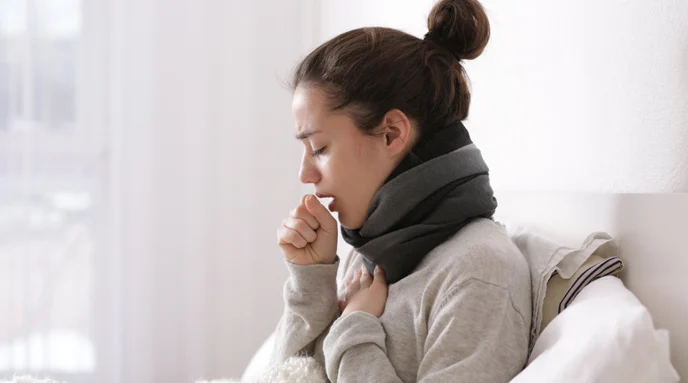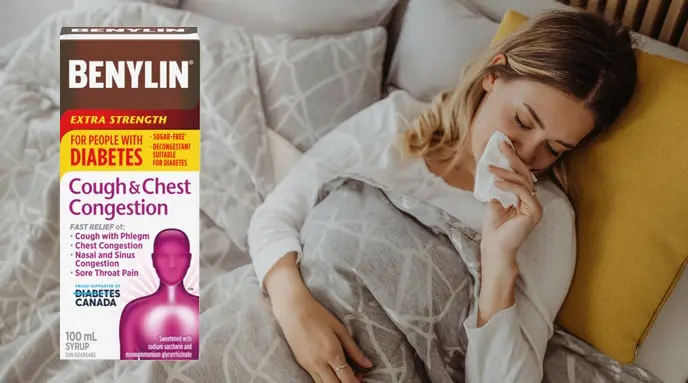What Is a Sore Throat?
The name speaks for itself, as a sore throat is marked by your throat feeling sore or otherwise scratchy or irritated. It’s a symptom of various causes, and the cause can impact the exact sore throat symptoms you experience. While many sore throats go away on their own, there are over the counter medications and other treatments you can use to help relieve the pain and discomfort during the experience.
Sore throats can be categorized into different types depending on what part of the throat they affect. This includes: laryngitis, which impacts the larynx; tonsillitis, which impacts the tonsils; or pharyngitis, which impacts the part of the throat directly behind the mouth.
What Causes a Sore Throat?
There are many different possible reasons one may be experiencing a sore throat. Most sore throats are caused by viral infections, such as cold or flu1. A sore throat could also be associated with other viral infections such as mononucleosis, chickenpox, measles or croup. While it’s less common, bacterial infections, such as strep throat, are also capable of causing sore throats. Bacterial infections require treatment with antibiotics to prevent complications.
Issues completely unrelated to an infection can also cause a sore throat.
These various causes can include:
Dry air
Breathing irritants such as pollution
Allergies
Gastroesophageal reflux disease (GERD)
Strained throat muscles
What Are Symptoms of a Sore Throat?
A sore throat can be characterized by various symptoms. It’s likely that you’ll experience pain in your throat that may feel worse when you talk or swallow. You could have trouble swallowing and speak differently than normal. Your throat could feel tender, scratchy, raw, dry, burning or irritated.
You may also have additional symptoms if the underlying cause is a cold or flu, such as sneezing, fever, and headache. Understanding the type of symptoms you are experiencing can help you or a medical professional determine the cause of the sore throat.
How to Relieve a Sore Throat
The cause of the sore throat will impact the recommended treatment. For example, you may need to let a common cold run its course, rest your throat after straining it or treat allergies to clear up the symptom of a sore throat. Nonetheless, there are various sore throat remedies that can help you relieve pain and discomfort that you may experience. These can include:
Using a medicated syrup that includes ingredients like: menthol (soothes a scratchy throat and helps relieve pain) dextromethorphan (helps to relieve dry and guaifenesin (helps to relieve wet cough). BENYLIN® offers a variety of medicated syrups that include these ingredients and others to help relieve symptoms associated with cold, cough and flu.
Drinking fluids to keep the throat moist. That being said, avoid liquids with alcohol or caffeine as they can dehydrate you
Gargling with saltwater. A saltwater gargle of ¼ to ½ teaspoon of table salt to 120 to 240 milliliters of water can help soothe a sore throat
Using a cool-air humidifier to eliminate dry air that may irritating the throat2
If your symptoms don’t improve or worsen, it could be a sign of a more serious underlying condition such as strep throat. If you have worsening symptoms, chronic sore throat or the sore throat is accompanied by serious symptoms such as a high fever or trouble breathing, seek advice from a healthcare professional right away
How to Help Reduce the Risk of Getting a Sore Throat
While there are remedies that may help you manage your sore throat symptoms until it most likely goes away on its own, there are also things that you can do to help you can reduce your risk of getting a sore throat or cold in the first place. The best method is to minimize your exposure to viruses and bacteria that are the most common causes of sore throats.
Follow hygiene and other practices such as:
Washing your hands and/or using hand sanitizer
Sneezing and coughing into a tissue or your elbow instead of your hands or the air
Keeping a distance from sick people
Avoid contact with public fountains or phones
Avoiding the sharing of food and tableware
Sanitizing items that are touched often, such as television remotes and phones



